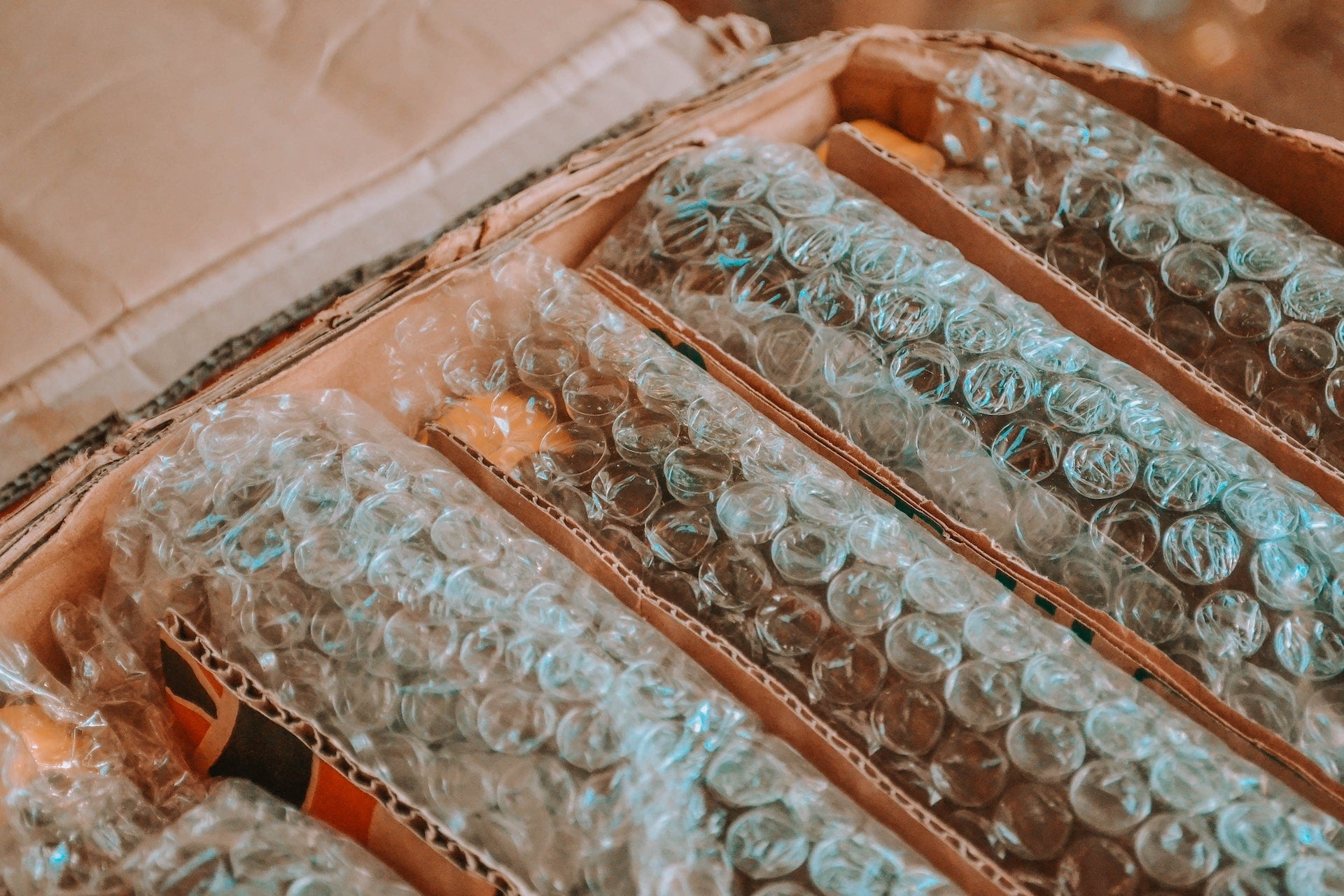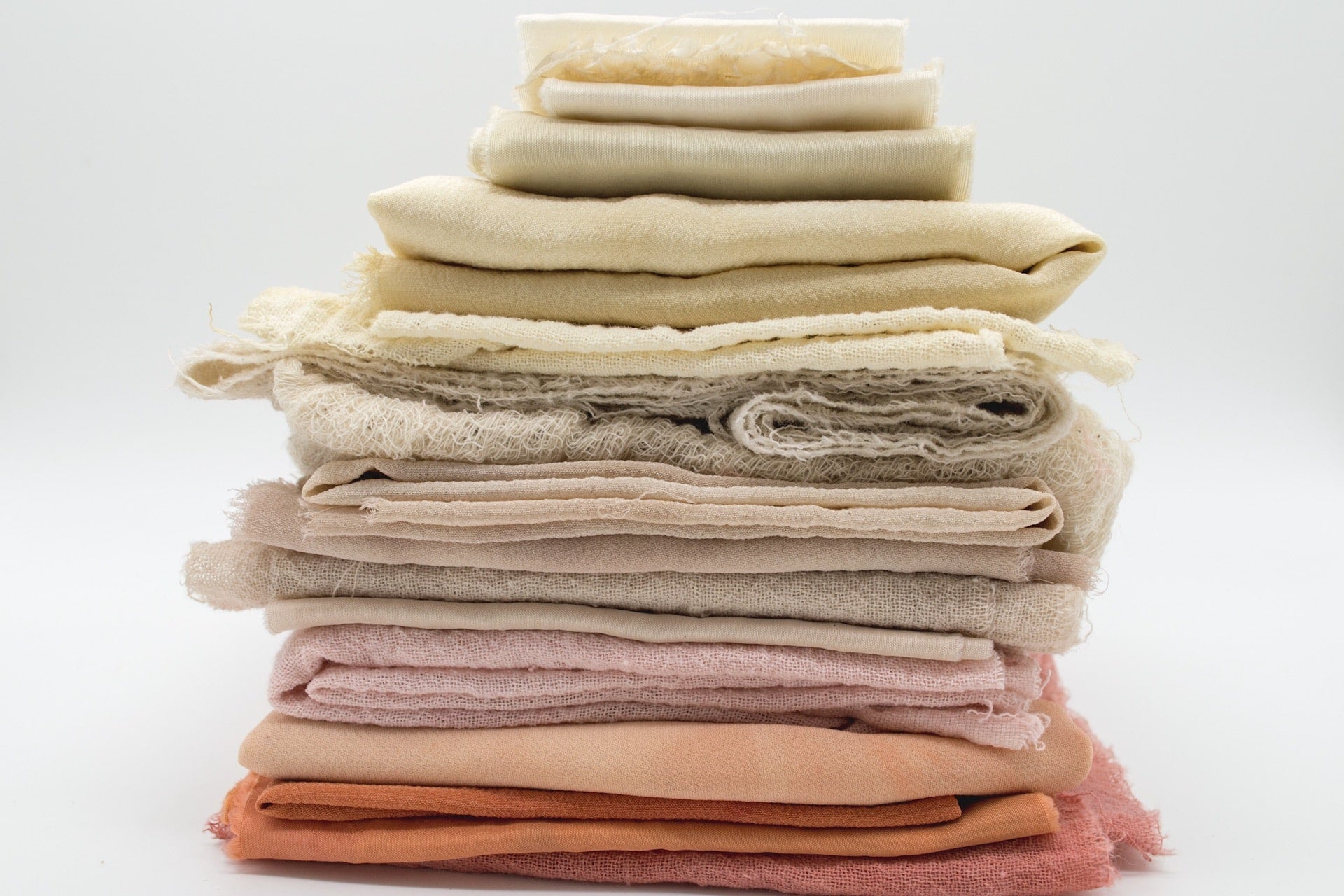Here’s a roundup of some of the finest sustainable fashion stories that hit the news in August.

Nowadays, more people prefer to rent than own
August 2, 2023
The traditional ownership of goods seems to be changing. And it doesn’t seem to be a phase - the idea of accessing goods instead of owning them appears to be an enduring form of consumption that people are increasingly being attracted to. That also includes fashion! It seems that consumers are shifting their buying habits to adjust in this time of economic instability. Renting things instead of buying - also known as the sharing economy - is not only more economical but of course it’s also more sustainable. And that, we like.
When it comes to fashion, the growth of the sharing economy means that more people will be able to access clothing they often struggle to afford - i.e., sustainably and ethically made clothing - but it also means that less clothing will be thrown away. Clothes can be worn for the relatively short period that we’re used to wearing, and are guaranteed to be given another life after that.
Funding greener cotton production in Australia
August 2, 2023
Typical cotton - a staple of the fashion industry - cultivation is not particularly friendly to the environment. But this new venture may just pave the way for a greener supply chain.
The Australian state of New South Wales (NSW) gave over $25 million to Hiringa Energy and Sundown Pastoral Co., which owns Good Earth Cotton®.
The fund will go towards building a renewable ammonia and green hydrogen production facility within a cotton farm in NSW. The key process here is electrolysis. Collected rainwater will be split into hydrogen and oxygen using solar-powered energy. Hydrogen fuel can then be used to pump irrigation water throughout the farm. The low-carbon ammonia, a by-product of the process, can potentially be used as crop fertiliser.
It’s reported that the hydrogen fuel could replace more than 1.4 million litres of imported diesel and offset more than 17,000 tonnes of CO2.
Under Armour signs major hemp sourcing deal
August 3, 2023
We recently wrote about some of the most sustainable and innovative fabrics to be used in fashion and unsurprisingly hemp made it on the list. The hemp plant grows quickly and densely and needs less water than other crops. When you add in the antimicrobial properties hemp has along with its breathability, it’s a wonder why more companies are not using this fantastic resource. Marijuana jokes aside, that wonder is receding a little bit now that Under Armour, a sportswear company, has signed a hemp sourcing agreement worth 9 million Australian dollars.
The agreement with Hemp Black allows Under Armour to incorporate sustainable elements into its supply chain. It seems that to do this, Under Armour has committed to invest AUD6.74m towards acquiring specialised manufacturing equipment.
Interestingly, the Hemp Foundation has undertaken research that re-affirms hemp as being durable, water-resistant, and fire-insulating, which may provide some additional insight as to why hemp has been chosen as an alternative to cotton for use in sportswear.
This brand is creating couture out of ocean plastic
August 6, 2023
Waste, textile among others, washing up on Africa’s - and Asia’s - shores is a dirty open secret. It’s a short-term “solution” for one country, but a massive long-term problem for another. Enter, Outa: the Tunisian brand transforming sea plastic into high-end fashion.
 Maud Beneteau for Outa. Source: FETHI BELAID / AFP
Maud Beneteau for Outa. Source: FETHI BELAID / AFP
To do this, they collaborated with international coalition Seaqual Initiative. Dedicated to fighting plastic pollution, Seaqual buys marine plastic at a stable price throughout the year. They also work together with brands and other manufacturers to recycle the recovered trash, creating new raw material. Seaqual’s on-the-ground team is Kerkennah Plastic Free. Not only does the entire initiative give way to eco-friendly fashion, but it also provides better economic and social opportunities for the local community.
French designer Maud Beneteau was the creative force behind Outa’s first collection, who saw it as “a challenge, a human dimension in this wonderful project that aligns with the idea of saving the planet.”
Human rights and sustainable supply chains
August 9, 2023
An EU law, which is approaching finalisation, seeks to mandate compliance for all companies operating in the EU with efforts to reduce human rights abuses in their supply chains. Previously, businesses were expected to voluntarily comply but the proposed law would require all large companies to undertake human rights due diligence among their suppliers (e.g. checking for child / forced labour) as well as consumers (e.g. products being used by consumers for surveillance of citizens).
There are understandably some difficulties with monitoring a complex web of supply chains that multinational companies can build up as they seek to create unique products. However, the proposed law is currently targeting large companies that theoretically have the resources to undertake such due diligence. Large companies are currently defined as those with at least 500 workers and €150m in net revenue. In sectors where there is considered to be a higher risk of abuse, such as clothing, footwear, and agriculture, the thresholds fall to 250 workers and €40m.
This sounds like a great idea to reduce human rights abuses but we can’t help but wonder if large companies may instead seek to reduce human rights abuses a different way: employ fewer humans. As technology advances, automation can be more effectively leveraged to drive efficiency. While some workers may be upskilled and retained, machines can replace from 1 to 6 workers according to a Pulse report by Shimmy when looking at textile factories in Bangladesh. Shimmy is predicting that the workforce there will reduce by 5% (i.e. 200,000 job losses) from the upcoming round of automation over the next 18 months. While there appears to be some demand for handmade items in the luxury segment of the market, other mainstream segments are expected to be significantly impacted by automation.
Stella McCartney introduces Mirum bags
August 18, 2023
As we mentioned earlier, we recently wrote about different types of sustainable fabrics so we’re a bit curious about anything new in this sphere! With that in mind, you can understand why our interest was piqued when we heard that Mirum isn’t a brand but a “luxury plant-based alternative to leather”. But what exactly is it?
Mirum is manufactured through a three-stage process, using bioneutral and certified biobased ingredients such as natural rubber, plant-based oil, and pigments like biochar and rust. Notably, Mirum avoids plastic use and conserves water by eliminating the need for tanning or additional water inputs. Naturally, this gives it a lower carbon footprint than conventional leather.
This material is being used in Stella McCartney’s Falabella and Frayme bags which are launching in Fall 2023.






